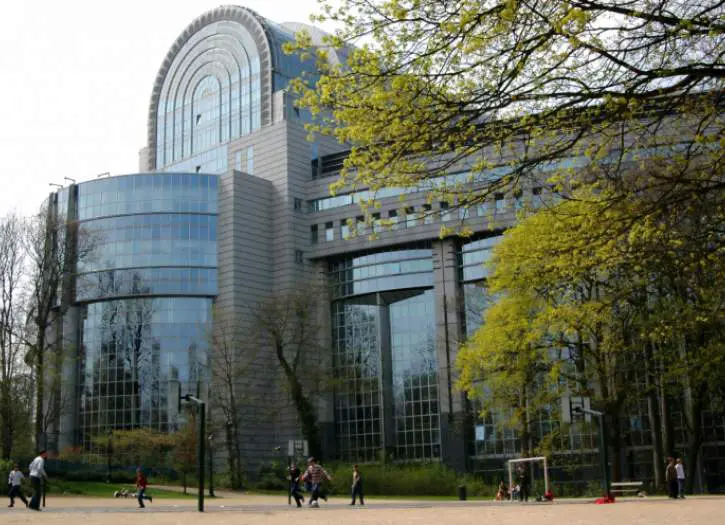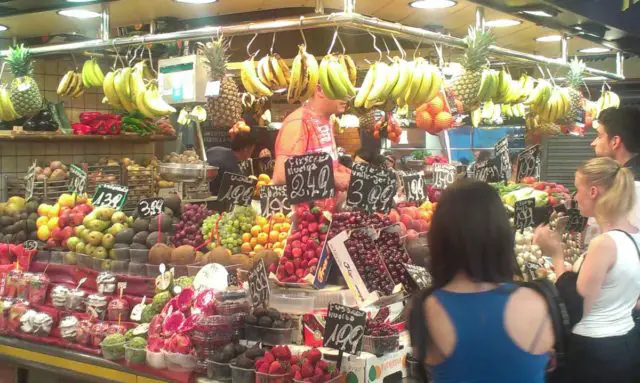The European Union (EU) since 2013 has been making commercial deals within the framework of the association agreements with Central American countries, highlighting among these Costa Rica for its enormous commercial potential.

According to figures recently revealed, the European Union made commercial exchanges with Central America for an amount of 12,160 million dollars in 2018, as indicated by the EU ambassador in Costa Rica, Pelayo Castro. Similarly, Pelayo Castro said, “Costa Rica is the main trading partner of the EU in Central America and represents 40% of total trade with the region: Costa Rica’s exports to the EU amounted to the US $ 2,689 million in 2018”.
For his part, the Vice Minister of Foreign Trade of Costa Rica, Duayner Salas, said that these alliances with the European Union allow the country to export its products and increase its commercial presence in the old continent. Likewise, Vice Minister Salas declared “Costa Rica has managed to position itself in the European Union with products of high added value and adjusted to high-quality standards. For Costa Rica, the agreement has been an opportunity to strengthen export and foreign investment flows and to diversify the exportable offer and the client portfolio.
Foreign investments bet on a growing Costa Rica.

Recently it was known through the EU ambassador in Costa Rica, Pelayo Castro, which the “Tico” proposal for an Electric Train System won the contest in the American continent for the EU cooperation fund that rewards initiatives related to sustainable cities. The amount with which the EU will support Costa Rica for this project is 5.1 million euros (about 5.6 million dollars), with the objective that the country’s population progresses faster, better and more sustainably.
“We are here because Costa Rica and the European Union are moved by the same values and aspirations and we face the same challenges. Mobility and transport are strategic for both of us and a bridge in our relationship,” said EU Ambassador Castro. This project will have an estimated construction time of five years and its starting date is expected to begin in January 2020. This is a proposal of cooperation and peer learning work, so other international co-proponents and co-implementers like for example, the Association of Municipalities of the Netherlands, Fomento San Sebastián (Pereira, Colombia) and Diputación de Guipuzkoa (Basque Country, Spain).
For The First Lady of Costa Rica, Claudia Dobles, this investment made by the European Union in the nation improves the capacity in urban planning and development and the design and execution of municipal infrastructure. “We are promoting adequate development in the territories where the electric train will pass so that we maximize the economic recovery opportunities of different cantons.” This is stated by the First Lady Dobles. It is important to know that this electric train project is part of the National “Zero Carbon” Decarbonization Plan of Costa Rica, with which it is expected to stop using fossil fuels in the country for the year 2050.
Tropical fruits are marketed in the EU.

In the FAO and OECD Agricultural Outlook report 2019-2028, it was presented that approximately 86% of pineapple and 70% of banana imports to the European Union (EU) come from Ecuador, Colombia, and Costa Rica. Besides, this report estimates that the demand for tropical fruits grows, due to changes in consumer preferences, for healthier alternatives. This translates into a closer trade union between Costa Rica and the European Union.
It is worth mentioning that Costa Rica has been able to promote more environmentally friendly agriculture, thanks to its environmental protection measures. This at the same time has allowed maintaining growth in productivity. However, it is necessary to continue promoting actions that promote sustainable agriculture.
Costa Rica is a small nation that aims to be an example for the other countries of the world in their struggle for the environment and sustainability, demonstrating that they can grow economically and structurally in harmony with nature.


